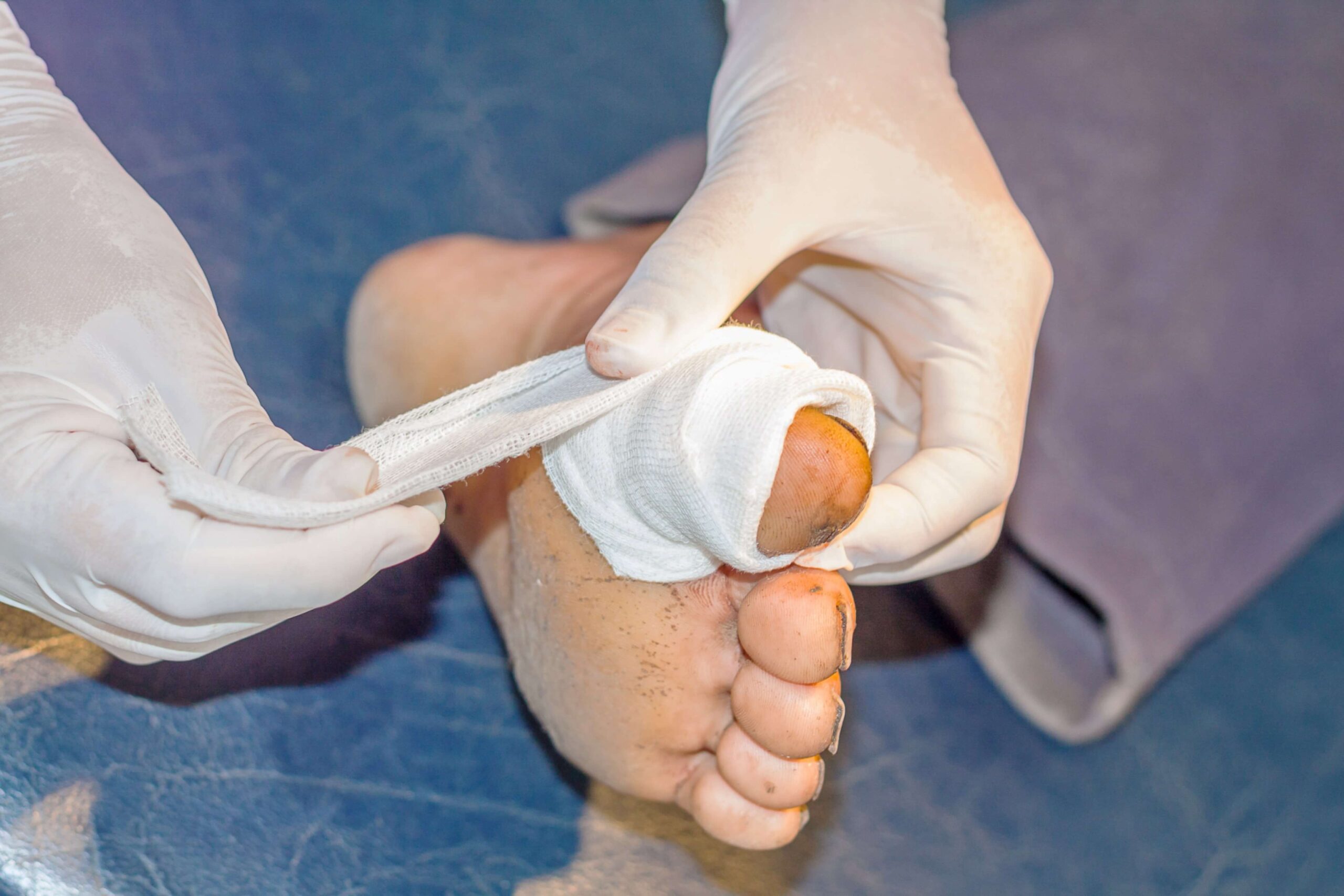Diabetes-related foot infections are a serious concern for individuals living with diabetes. These infections, particularly non-healing foot wounds, can cause significant health complications if left untreated. Orthopedic treatment plays a crucial role in managing these wounds, promoting healing, and preventing further complications. This blog will explore the importance of orthopedic care for diabetes-related foot infections, how it helps with infection management, tissue preservation, and enhancing mobility, and why timely intervention is essential for long-term health.
Understanding Diabetes-Related Foot Infection
Diabetes affects the body in numerous ways, one of the most significant being its impact on circulation. Poor circulation, particularly in the lower extremities, can prevent wounds from healing properly, making diabetic individuals more prone to foot infections. This is especially problematic for those with high blood sugar levels, as it impairs the body’s natural ability to fight infections and repair tissue.
Diabetic foot ulcers, a common manifestation of diabetes-related foot infections, often develop due to pressure, poor circulation, and nerve damage. These ulcers can become infected if not properly managed, leading to even more severe complications like gangrene and, in extreme cases, amputations.
Importance of Orthopedic Treatment for Diabetic Foot Wounds
Orthopedic treatment is essential for managing diabetic foot infections and preventing further complications. An orthopedic specialist can offer targeted care that focuses on infection management, tissue preservation, and improving mobility. With the right treatment, individuals can avoid infections from worsening, reduce the risk of amputation, and promote long-term healing.
Orthopedic specialists are trained to assess the severity of foot wounds, ensure proper wound care, and use advanced techniques to help reduce pressure on the affected areas. They may also recommend custom orthotic devices or specialized footwear to protect the feet and facilitate healing.
The Impact of Non-Healing Foot Wounds in Diabetic Patients
Non-healing foot wounds are one of the most dangerous complications for individuals with diabetes. Due to poor circulation and nerve damage, these wounds often fail to heal on their own, putting individuals at risk of severe infections. If left untreated, infections can spread, leading to tissue death and potential amputations.
In addition to the physical risk, non-healing wounds can also affect a person’s quality of life. Diabetes-related foot infections often cause pain and limit mobility, making everyday activities challenging. This is where orthopedic intervention becomes crucial in providing relief and preventing long-term disability.
How Orthopedic Treatment Promotes Healing in Diabetic Foot Infections
Orthopedic treatment for diabetic foot infections focuses on several key aspects of care. First and foremost, specialists work to manage infections and prevent them from spreading. This may involve the use of antibiotics or surgical intervention to remove infected tissue.
Orthopedic specialists also play a critical role in relieving pressure on the affected area. Pressure relief is often achieved through custom orthotics or special footwear designed to offload pressure from the ulcerated area, which can significantly improve healing outcomes. In addition, enhancing mobility by providing assistive devices can help individuals maintain their independence and prevent further injury to the foot.
Key Benefits of Early Intervention and Professional Care
Seeking professional orthopedic care early on is vital for managing diabetic foot infections. Early intervention can prevent infections from worsening, reduce the risk of complications, and promote faster healing. By working with an orthopedic specialist, individuals can receive personalized care that targets their unique needs.
Orthopedic care also ensures that diabetic patients receive regular monitoring of their foot health. This proactive approach helps catch problems early, preventing the development of severe complications like ulcers or amputations.
Preventing Future Foot Infections in Diabetic Patients
Prevention is key when it comes to managing diabetes-related foot infections. Individuals with diabetes should establish a daily foot care routine, which includes checking the feet for wounds, keeping them clean and dry, and moisturizing them to prevent cracking. Wearing proper footwear and avoiding tight shoes is also essential to reduce pressure and prevent ulcers.
Regular check-ups with an orthopedic specialist can help identify early signs of foot problems before they become serious. By staying on top of foot health, individuals with diabetes can greatly reduce their risk of developing foot infections and other related complications.
Takeaway
Orthopedic treatment for diabetes-related foot infection is crucial for preventing complications and promoting healing. By addressing issues such as infection management, tissue preservation, and mobility enhancement, orthopedic specialists play a vital role in ensuring the health and well-being of individuals with diabetes. Early intervention and regular monitoring are essential for preventing non-healing foot wounds and avoiding more severe health problems. If you or a loved one is experiencing






